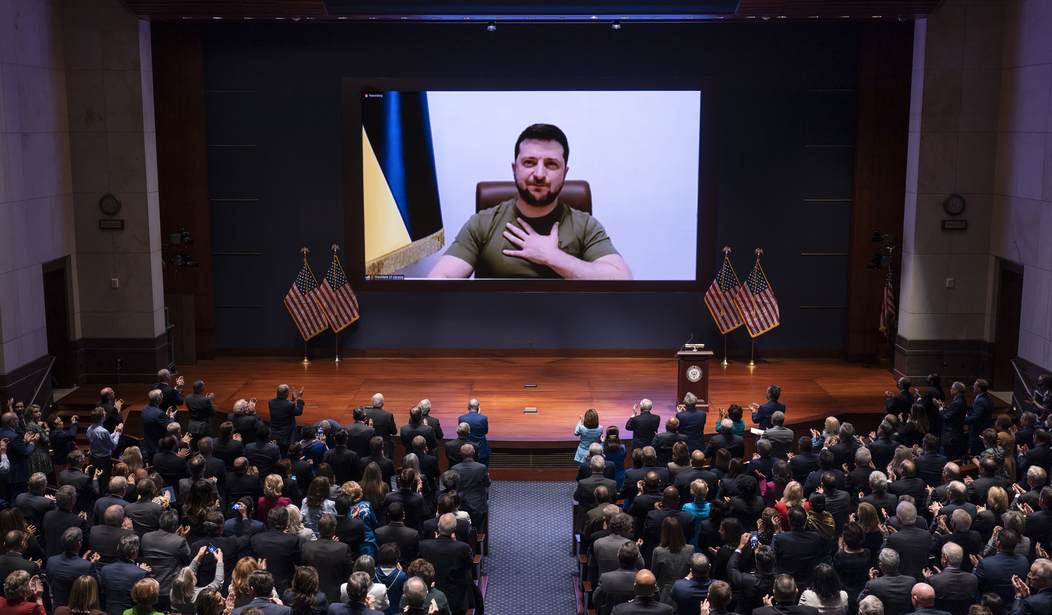Vladimir Putin’s rape of Ukraine reminds me of an abusive husband who refuses to let his wife get a divorce, regularly beats her, then threatens sympathizers that if they stick their noses into his family’s business, he’ll go nuclear on them. They believe him and keep a distance.
Of course, the history of the broken marriage between Ukraine and Russia is magnitudes more complex than meddling in the affairs of an abusive marriage. Ukraine’s messy divorce with Russia is the story of a long, volatile relationship that sits on a powder keg filled with good guys in white hats, bad guys in black hats, and double-dealers in gray hats.
But with all its deep complexities, one thing is excruciatingly simple: A bad actor should never be allowed to use weapons of war as a sustained military strategy to indiscriminately kill innocent men, women, and children.
No matter how we got here, when all that “good actors” can do in the 21st century is offer words and comfort, but little else to actually stop the killing, a world system built on blood, guts, and the sacrifices of tens of millions, is severely broken.
That’s what President Volodymyr Zelensky of Ukraine tried to convey in his speech to the U.S. Congress:
“We need to create new tools to respond quickly and stop the war,” Zelensky said. “… Today, the world does not have such tools. The wars of the past have prompted our predecessors to create institutions that should protect us from war. But they, unfortunately, don’t work. We see it; you see it.”
Strangely, what’s happening with Ukraine reminded me of the 1964 Kitty Genovese case – a murder that prompted the nationalization of the 911 system and created a psychological term called the “bystander effect,” which refers to the tendency of people not to taken in dangerous emergency situations when other bystanders are present. It’s also a tendency not to get involved in a quarrel between and man and a woman – even a violent one – when the couple has an established relationship.
Recommended
Back in the ‘60s, serial killer Winston Moseley was asked in court why he returned to the Kew Gardens neighborhood of Queens, N.Y. to stab Kitty Genovese 12 times, then rape the dying 28-year-old on the hallway floor of her apartment complex while stifling her cries.
Kitty, severely injured, had staggered to that hallway after Moseley stabbed her in the back twice as she walked from the Long Island Rail Road station parking lot toward her apartment after work around 3:15 a.m.
“Oh my God, he stabbed me! Help me!” she screamed – so loud that the attacker noticed lights coming on in the windows of a neighboring apartment building.
“Let that girl alone!” yelled Robert Mozer from his 7th-floor window, causing Moseley to quickly run away and take off in his car. Kitty staggered her way to the hallway inside the rear entrance of the building, but the door leading to the apartments was locked. Weakened by her injuries, she collapsed to the hallway floor and struggled to stay conscious.
That’s where Moseley found her after hunting her down to finish the job. He wasn’t scared off, after all. Without quick help, this severely injured 5-foot-1 woman was at the full mercy of a psychopathic necrophiliac who was on a frenzy to end her life.
No one came. Moseley killed Kitty. Something in the culture of this neighborhood was severely broken.
“I had a feeling this man would close his window and go back to sleep, and sure enough he did,” Moseley said in court about Mozer, the man who yelled out the window from a distance. “… I came back because I didn’t finish what I set out to do.”
Like all of the neighbors who were forced by the attacker’s crime to become part of this sordid story as it was unfolding, Mozer only held one tiny piece of a larger puzzle which, by itself, could never have inspired the urgency needed to stop killing as it was happening.
A sensational headline in the New York Times was severely unfair to the neighbors: “37 Who Saw Murder Didn’t Call Police.” There weren’t 37 witnesses, and witnesses who did come forward only saw bits and pieces.
Still, psychologists created a term for the exaggerated version of these do-nothing neighbors – the “Genovese Syndrome,” also called the “Bystander Effect (apathy)” or “Spectator Effect.”
But while it would be careless to fault most of the witnesses for not intervening, a few deserved the blame. The most egregious was dog groomer Karl Ross, who lived two doors down from Kitty, spent time socializing in her apartment, and once sold her a dog.
Ross heard the sound of a screaming woman and froze behind the door, hoping it would stop. After pacing behind the doorway, he opened it slightly when the noise died down. He saw Kitty being stabbed and quickly shut the door after making eye contact with Moseley. He called a friend to ask what he should do. “Call the police,” of course. Police later asked Ross why he didn’t call sooner.
“I didn’t want to get involved,” he said.
Is there anything much worse than a man sitting by while his “friend” is being raped and murdered? No doubt, Ross was terrified that Moseley, who was willing to use a knife to stab and rape his friend, could also go nuclear on him.
What to do about Russia’s invasion of Ukraine has been a source of deep division even between conservatives. And why not? There’s enough complexity involved for purists on both sides to disagree about why we should “do something” and “do nothing.”
And can you blame the “do-nothings”? Biden – the guy constitutionally empowered to lead the effort to “do something” – has made a complete mess of America. With his notoriously destructive policies and executive orders, he’s chopped off the country’s institutional limbs, leaving us to “lead the world” in survival mode. We’re like the one-legged man in a butt-kicking contest, as they say.
So putting American troops on the ground in Ukraine or establishing a no-fly zone is unthinkable, especially with the current sheep at the head of this country of lions. But given Putin’s systematic murder of innocent civilians, we can’t just “close the window and go back to sleep.” We should help give Ukraine the wherewithal to fight for itself.
And yes, there was one witness in the Kitty Genovese story who turned out to be the tragic story’s only heroine: Sophia Farrar, Kitty’s neighbor and friend. After hearing the commotion in the hallway and seeing what happened to Kitty, she called an ambulance, then went back down to and held the dying young woman in her arms until they arrived. She had no idea whether the attacker would return or not and didn’t much care.
“I only hope that she knew it was me,” said Farrar, “that she wasn’t alone.”

























Join the conversation as a VIP Member